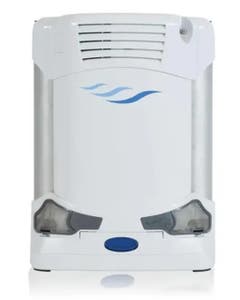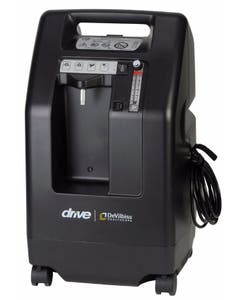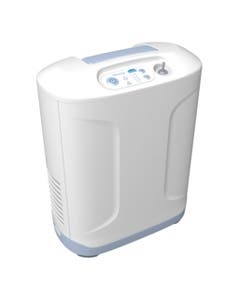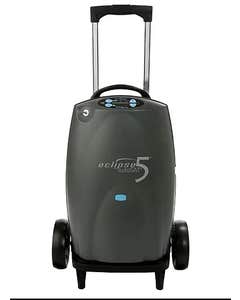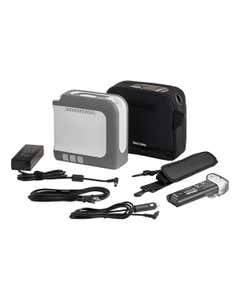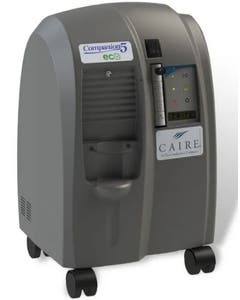COPD can affect any age group but is more common among the elderly. It is important for those managing COPD to better understand how the disease affects your health as you age.
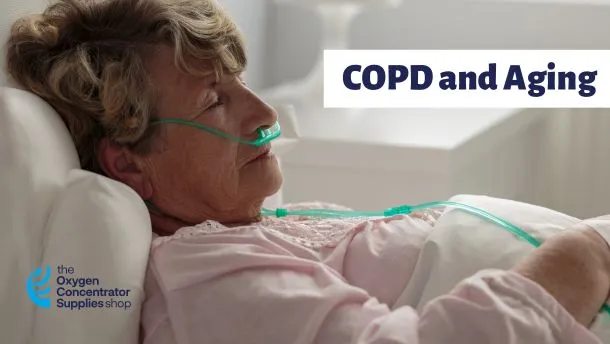
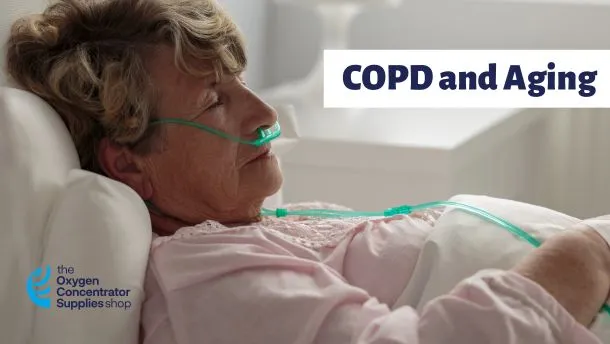
What is COPD?
Chronic obstructive pulmonary disease (COPD) is a progressive inflammatory lung disease that restricts normal breathing. COPD encompasses other lung diseases such as chronic bronchitis and emphysema.
The most common cause of COPD is lung exposure to harmful irritants, typically cigarette smoke. But other environmental factors such as long-term exposure to air pollution and chemical fumes can also contribute to the disease.
The Growing Impact of COPD Among Aging Populations
An estimated 20–25% of individuals over 70 years old may be affected by this condition.¹ Managing this illness becomes more challenging for elderly patients and their caregivers. While aging already has numerous health impacts, it can be compounded by the effects of COPD.
COPD and Aging: How the Disease Progresses Over Time
As we age, our lungs naturally lose elasticity, reducing the volume of air we can intake with every breath. Our lung muscles also weaken with age so stresses like physical exertion can also reduce lung capacity. With age, our immune system can also be less effective at fighting disease, which can leave the lungs more vulnerable to illness and the complications of diseases such as COPD.
With a less responsive immune response, an aging patient with COPD can become more susceptible to COPD flare-ups. If the patient suffers from other health conditions, symptoms can feel more intense, and recovery from even minor illnesses such as a cold can take longer.
COPD and the Elderly: Unique Challenges
COPD and aging can further limit physical capacity. Elderly COPD patients may have reduced mobility because of limited lung function. They may also struggle with daily activities as they become more easily winded with even the slightest exertion.
COPD can also take a mental health toll on the elderly. With limited physical capacity, patients can become socially isolated from healthy friends and family. Patients can begin to suffer from symptoms of depression and anxiety.
Loss of mobility can also lead to loss of independence. Patients may require the help of caregivers for even the simplest of daily tasks. It becomes important for family and professional caregivers to have empathy and understanding for COPD elderly patients who have this dependency on others for assistance.
Signs and Symptoms of COPD in the Elderly


Older adults need to pay attention to changing health needs. When focusing on respiratory conditions such as COPD it is important to notice symptoms early to seek treatment. Early signs of COPD include a chronic cough, shortness of breath and frequent respiratory infections.
With aging symptoms can worsen to include persistent wheezing, chronic fatigue and reduced stamina. Older adults may also begin to experience a tightness in the chest and an increase in mucus production.
Later stages of COPD can lead to more labored breathing even when an individual is at rest. A condition known as cyanosis, a bluish tint to the skin, also can occur as oxygenation and circulation are reduced. Confusion can indicate the advancing of COPD as the brain receives reduced oxygen flow.
COPD and Death in the Elderly: Understanding the Risks
With advanced COPD comes a higher mortality risk. Elderly COPD patients in the most progressed stages of the disease face respiratory failure, severe pneumonia, and other fatal complications.
For the elderly with COPD in the advanced stage of the disease, it is important for family and caregivers to discuss and arrange for palliative care and symptom management. Quality of life becomes more important than treatment in the final stages of COPD.
While age increases the mortality risk for COPD patients—85% among those aged 65 years or older, there has been an overall decrease in the number of deaths in this age group.² Earlier detection and improved treatment have helped COPD patients live longer and with better quality of life.
COPD and Heart Failure in the Elderly
While COPD is a lung disease it can also affect the health of the heart. Reduced blood oxygen levels force the heart to work harder by putting excessive strain on the muscle. The low oxygen flow also causes pulmonary artery constriction which further strains and weakens the heart.
The stress placed on the heart over time causes chronic low blood oxygen levels and high blood pressure in the lungs over time. In many instances, heart failure can be the primary cause of death.
Elderly patients with COPD may have to learn to cope with both their lung disease and their heart health as well. Regular monitoring of heart and lung function may be necessary. The use of medications for managing both heart and lung problems and lifestyle changes all help sustain lung and heart health together.
Managing COPD in the Elderly: Tips and Treatment Options
Elderly COPD patients will find the most common treatments include medications including bronchodilators and inhalers can help reduce the severity of symptoms and maintain overall lung function. Oxygen therapy also plays an important role in making daily breathing easier and improving well-being. Rehabilitation for heart issues may also be necessary.
Most elderly patients with COPD can also take steps to improve their health through lifestyle changes. They should quit smoking for sure. Even though physical exertion is difficult, they can improve stamina through low-impact exercises. Maintaining a healthy, balanced diet helps health overall, which can assist with healthier breathing. Learn more about an ideal diet for those who have COPD.
Keeping up with doctor visits is essential for intervention into complications from COPD. Checkups and awareness of symptoms can help prevent more severe health events.
Conclusion
Along with many of the health issues the elderly must face, an older adult with COPD must contend with unique challenges. Discovering the disease sooner can help aid in treatment. Patients can also find the best strategies for managing their symptoms once they have a diagnosis. Doctors, caregivers, and families can work together to provide the essential care needed to help elderly patients live longer and better with COPD.
If you have been prescribed oxygen therapy, and need assistance purchasing oxygen therapy products that suit your needs, let The Oxygen Concentrator Supplies Shop help you! Give us a call at 888-941-1688 today!
References
- Geriatrics. Pushpa Raj Joshi, Pulmonary Diseases in Older Patients: Understanding and Addressing the Challenges 2024 Mar 7.
- American Lung Association. COPD Trends Brief: Mortality



